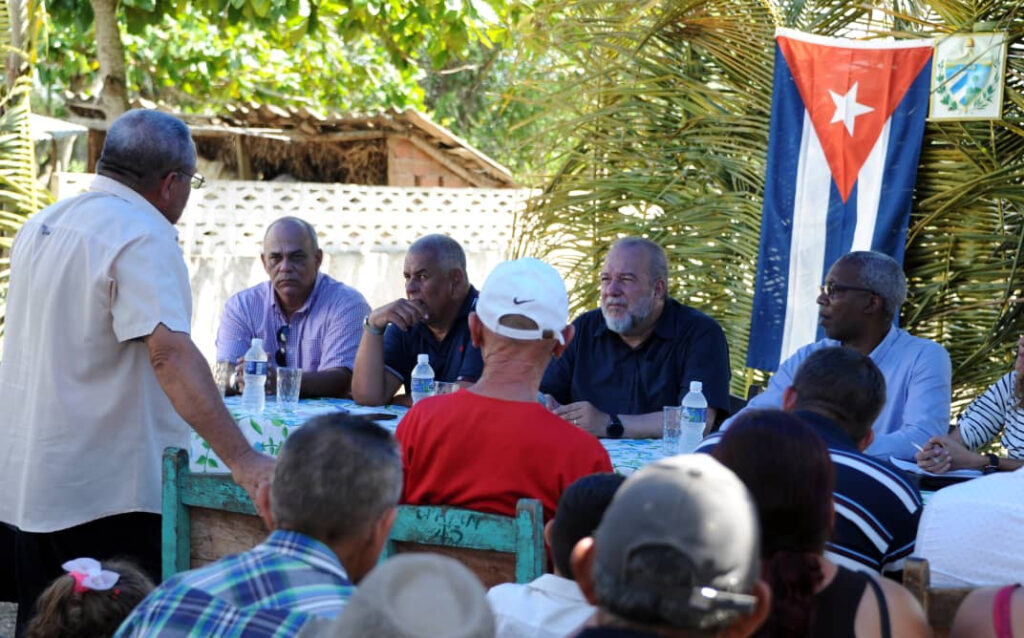“The people need things to change, but with the Revolution that Fidel and Raúl made,” was his mantra

14ymedio, Havana, 21 September 2024 — In a battered fiber cement shelter in Cayo Palma, a small town in Holgüín, Cuban Prime Minister Manuel Marrero demonstrated his method for democratic consultation: the monologue. The cameras of Cuban Television, which followed him on his journey through Gibara from “the first light of day,” recorded the long scolding of the prime minister to “the odd leader who does not have the sensitivity required to be able to talk to the people.”
“They are afraid to come here and be told to their faces the things that need to be said,” Marrero exploded, sweaty from the heat of September and surrounded by local authorities. The difference – he stressed – is that he is willing to “sit down” with the guajiros and ask them to give him their criticism. The first row of about twenty seats in the little school were for officials; the farmers – few and standing – waited their turn to take the floor.
Cuban Television did not devote too much time to the “dissatisfactions” in Cayo Palma, nor in Muñoz, another more populated town. Off camera, the reporter admitted that there was a notable deterioration of the “roads” to both towns and a “scarce supply of goods and services.”
One of the few televised testimonies was that of a woman to whom the authorities brought some basic supplies – cooking oil and rice – and she complained that there was “nothing constant.” It’s not easy for the inhabitants because of all the red tape, and they gave up a long time ago when it came to getting medications.
The bread rolls are not only tiny but are also transported in dirty boxes surrounded by flies
Bread is another of the great problems of the small towns of the eastern province. The images themselves were eloquent: the


